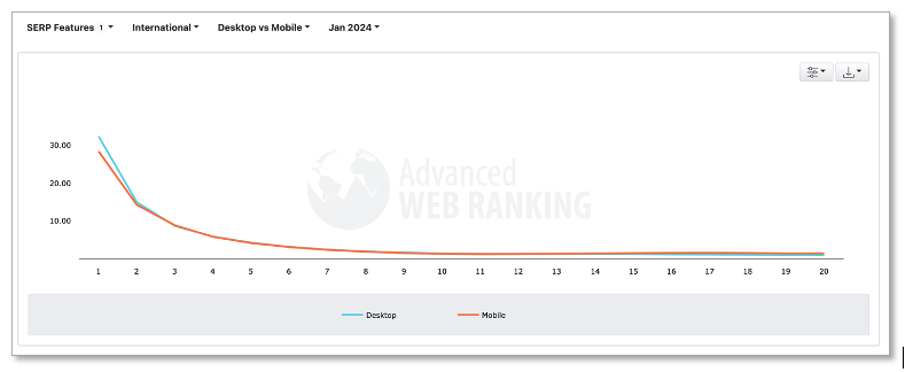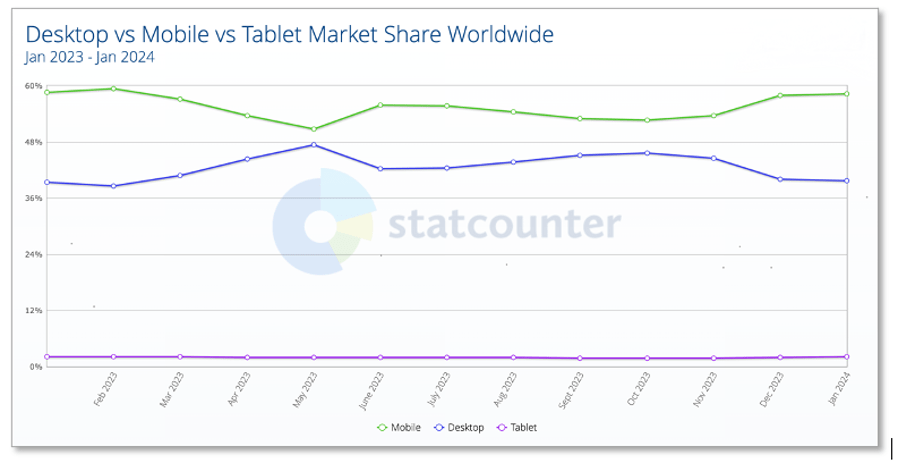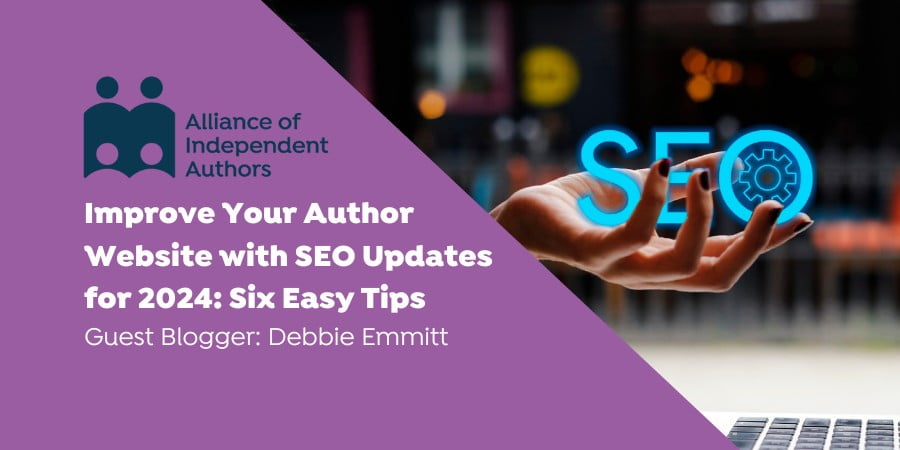
Photo by Thought Catalog on Unsplash
Search Engine Optimisation (SEO) is about giving your author site the best chance to reach the top of search engine listings, but Google (other search engines are available…) is constantly updating its algorithm and tech.
To help you stay ahead of the curve, ALLi Partner Member Debbie Emmitt shares six easy tips you can put into action to improve your author website and maximise your chances of being noticed in 2024. This article contains not only evergreen SEO advice for your author site but also up-to-date information to ensure you keep attracting potential readers, agents and media bods. So, take this post as a sign to log in to your author website and update your SEO to raise your profile this year.
A quick reminder: why bother with SEO?
SEO is a must for any author who takes their online marketing seriously. Let’s face it, what’s the point of having a website if no one can find it? Or of settling for a position beyond page one of search results, especially Google? Most web users don’t click to page two; indeed, few look past the top four or five results on the first page. Do you?

The above graph from Advanced Web Ranking, shows the sharp decline in click-through rate (CTR) after Page 1 of search results, using statistics from January 2024.
Search engine algorithms are constantly evolving as user behaviour changes (such as the huge increase in mobile usage and voice search over the past few years). The amount of web content is increasing exponentially, and what we know about SEO at any given point quickly becomes irrelevant. For example, for a while now, Google hasn’t used the keyword or description metadata fields to understand the content of a page, meaning SEO embedded across your site is even more important.
Read on for SEO tips to help you keep those visitor stats high in 2024 and beyond.
1. Answer a search engine's questions
It’s all very well getting people to your page, but if they don’t find what they need, they’ll leave quickly and search engines will notice.
Since 2015, Google has used an artificial intelligence system – RankBrain – that recognises how many people click through to your page and how long they stay there. To be a friend to RankBrain, you need to answer your target audience’s question or problem better than anyone else out there.
If you’re an established author, this isn’t too taxing, as people know your name and book titles so they will be already searching for these. However, how do you answer a question if you are less well known?
Take a few minutes to think about the questions that people may be searching for which your site can provide the answer to, then use those key questions to plan the content you provide:
- What is the subject matter of your book/s that people may be interested in? (e.g. location, time period, genre, characters, sexuality, setting, occupation, disability … this list can be as long as you want to make it!)
- If you write fiction, what are the specific tropes within your genre that people love and may then search for?
- If you write non-fiction, are there actual questions your content answers? Make sure they are clearly listed.
- What do the best-known authors in your genre include on their site that people may be searching for? You can take a look at competitors to get an idea of what to include (e.g. maps, freebies, book signings/readings, conferences).
2. Include relevant keywords in headings and content
Words that describe you and your books should also be incorporated naturally across your content, so that it still flows, yet regularly contains words and phrases that people would be searching for. Search engines particularly like these words to be in headings and subheadings.
As personalisation in search results has taken off, use words that are highly specific to your audience by considering the language and phrases they would use personally. Voice search has exploded over the last few years (think Alexa, Siri etc.), so consider not only what people would type into a search box but also what they would say in their natural speech pattern.
Make a list of the keywords you should use. As well as your name and book titles, they may include:
- your genre/subgenre/trends/tropes
- languages specific to your book
- themes or issues covered in your book
- geographical setting
- comparable books or characters
Now you can include these keywords in content on the relevant pages. The higher up the page they appear, the more search engines will take note. So include them where possible in the URL (a good reason to use your name as your domain name), title and first sentence. But remember, they must flow naturally and must be relevant to what you actually offer.
3. Add ‘behind-the-scenes’ text for non-text elements
Your page content needs to be readable by search engine spiderbots (these are bits of code that ‘look’ at your site to determine what it’s about and what to do with it). They have the opposite appetite to human visitors: they like text, not images/videos/non-text content.
To please these critters, make sure your images have meaningful alt (‘alternative') text that accurately describes the image, and any videos have high-quality descriptions, ideally with captions or a transcription, or both.
All this ‘behind-the-scenes’ text serves double duty, as not only do search engines love it, but it also boosts the accessibility of your site, as screen readers (such as those used by visitors with visual impairments) can only make sense of text-based content.
4. Include compelling content in your search engine snippet
The elements of your page information that appears in search engine listings are: page title, URL and page description. Make sure these are as inviting as possible, to encourage people to click.
How to do this, you may ask? There is a quick and easy bit of research you can engage in over your next cup of coffee:
- In Google, enter search terms people may use to find your site, for example, “mystery books”.
- Look at the top search results. Notice what words they use in their page titles, descriptions and high up on the actual page.
- Use similar words (obviously as long as they are relevant to your content), in your page titles and meta descriptions.
The meta description of a page isn’t displayed on the actual page, only in snippets such as search engine results, social media links etc.
Although search engines no longer rely on it to determine what your page is about (their spider bots can now access all the text on your page to get a clearer idea of this), a high-quality description of each page on your site has a small impact on your page ranking.
Expert tip:
Don’t provide the complete answer to a user’s question in your page description. They need to click through to your site to help your search engine ranking, and if you offer total satisfaction in your text snippet, they’ll have no need to click through. Incidentally, this is why many people are concerned about Google’s experimental use of generative AI (Search Generative Experience – SGE). It creates summaries of information based on existing website data, so that users may not be motivated to click through to the original webpage, as they will already be given the answer to their search query (regardless of whether it is entirely accurate or not).
If you use WordPress for your site, there are plugins that can help you to easily add page descriptions, as well as improving your content for search engines. The most popular one at the time of writing is Yoast SEO, although others will be available, so take a look around at what's on offer.
5. Use inbound, outbound and internal links
There are three types of links to know about, all of which contribute to SEO.
Inbound links (external sites linking to you)
The higher a site’s quality (and the higher it ranks in Google), the better it is for you to have a link from it to your site. However, first bear in mind whether it is a relevant link. Don’t just reach out to the top dogs because they are the top dogs. Steve Napier, SEO consultant, has provided an extensive list of what makes a quality site.
Some ways to attract quality inbound links:
- Get active on social media, and include your web address on your social profiles. While a link from Facebook or Twitter is not counted as a high-quality link, people may copy your link to their site. Plus, it creates traffic to your site, which further helps your SEO. This ALLi podcast has lots of useful tips for social media for authors, hosted by Orna Ross and Joanna Penn: Social Media For Authors.
- Comment (usefully!) on relevant blogs, and include a link to your site. Make sure the link doesn’t come across as shameless marketing but as a geninely useful link that is pertinent to the blog post.
- Guest blog – politely approach the owner of a blog where your target audience hangs out, and offer to write a guest blog post. Make sure a link back to your site is included.
- Go on podcasts – you can announce your web address on the episode, and it can also feature in the episode blurb on your host’s site and/or in the show notes.
Outbound links (from your author website to external sites)
It may seem counter-intuitive, but outbound links, especially those of high quality, can have a positive effect on your SEO. This has been proven in research such as this 2020 study by Reboot.
Some tips on using outbound links:
- If you blog, include a couple of relevant, quality external links per post, then inform the link owners. This is great networking and gets your name out there. Plus, you never know, they may link back to you!
- Moderate all comments on your posts before publishing. This will ensure that low-quality or spam links do not get auto-posted to your site and negatively impact your SEO. Incidentally, a healthy level of interaction on your blog posts is another small boost for your search ranking!
- Force outbound links to open in a new window, so your visitors can close that window and still keep your site open. Simply add target=“blank” to the end of the link or use your CMS (e.g. WordPress, Wix, Squarespace) link options to “open link in new window”.
Internal links (between pages on your author website)
These are good for SEO because they encourage people to explore your site and therefore stay longer, which search engines will notice.
This is probably the easiest link tip to implement for two reasons:
- You (hopefully!) know the content on your site, so can easily pinpoint places to add internal links between pages.
- You are in control of your own site (either directly, or via a site administrator).
6. Optimise your author website for mobile
It is now more crucial than ever that your site is optimised for mobile if you want to improve your SEO. So, if you haven't before, now's the year to get up to speed.

Graph from StatCounter, showing how mobile usage is now significantly greater than desktop.
Back in March 2018, Google unveiled its revised indexing system: Mobile-first indexing. This was an enormous change to their algorithm that still very much applies today.
Mobile-first indexing essentially means that if your site still has a mobile version (the URL begins with “m.”), Google will use that as the primary version of your site, rather than your desktop version.
To ensure your site is up to date with regard to this approach, follow this advice:
- If your site has a legacy mobile version, remove it and instead ensure that your desktop version is responsive (will display well on mobile and other devices).
- Don’t hide content behind a ‘Read more’ drop-down to make your content shorter for mobile users. Search engine spiderbots can’t access this hidden content so can’t index it.
- Employ a mobile-first attitude to your site. Design for mobile primarily, not as an afterthought. You can check your site for mobile friendliness using Google’s mobile-checking tool.
Other considerations to help improve your author website
There are lots of other small things you can do to improve your site’s SEO, including making sure your content is well laid out, easy to navigate and written with the user in mind. All these elements will ensure people stay longer on your site and keep coming back for more.
It’s debatable whether frequent updates will have a positive impact and this probably isn’t worth worrying about if you don’t have a blog or don’t have many updates to make. Just make sure that the content you do have is not out of date, or this will turn people away. It’s far more important to focus on providing quality content and links than worrying about if you have published new content in the last two months.
If, after reading this post, you’re suffering from information overload, please don’t panic! Start working slowly through each tip, a little each day or each week, and before you know it your site will have more visibility and more traffic.
 Debbie Emmitt, has two decades of experience working with web content. She is passionate about sharing her web skills with the author community, and is the author of two guides sharing her digital skills, including Improve Your Author Website.
Debbie Emmitt, has two decades of experience working with web content. She is passionate about sharing her web skills with the author community, and is the author of two guides sharing her digital skills, including Improve Your Author Website.
Debbie is also an editor and proofreader of web content, fiction, and non-fiction, as well as a debut mystery author.
 Find out more
Find out more
You can find lots more tips and advice on SEO for authors in the ALLi Ultimate Guide: SEO For Indie Authors.





